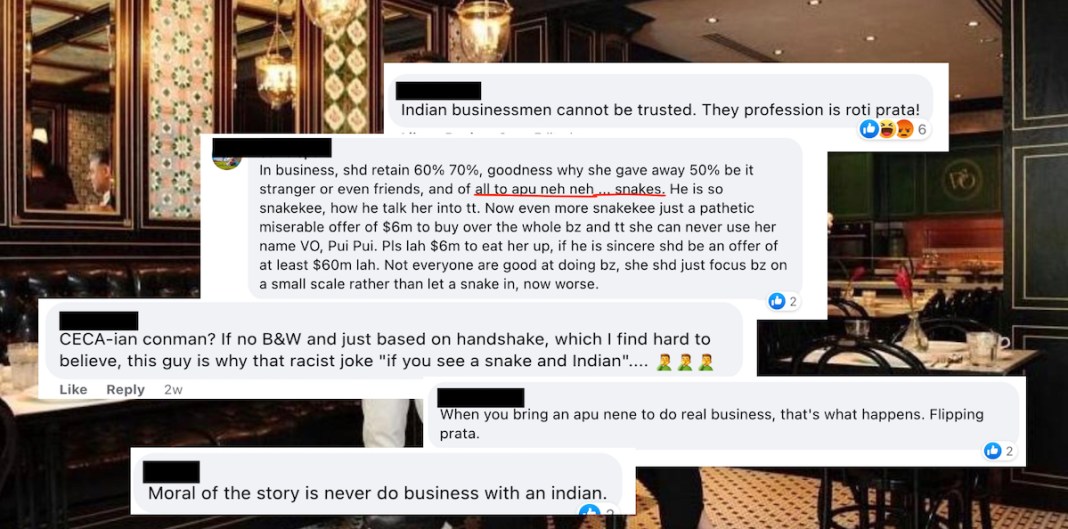Singapore is often hailed as a model of multicultural coexistence and racial harmony. A melting pot of cultures, races, and religions, the city-state has embraced the principles of tolerance and respect for all. However, in recent times, the illusory veil of harmony has been lifted by the emergence of social media. This is where a different narrative unfolds. From offensive comments to blatant discrimination, the lens of social media reveals the deeply ingrained prejudices that persist. This underscores the need to address the issue of racism on this red dot we call home.
Case study: Straits Times post on Facebook
For example, one particular post on Straits Times’ Facebook page garnered quite a number of discriminatory words being thrown around. The post was an article about a civil case between restaurateur Violet Oon and businessman Manoj Murjani of TWG fame. Violet “gave” 50% of her company to the Manoj in 2014, believing she’d found a perfect business partner. Tensions then began simmering over salaries and other issues, and both sides made offers to buy the other out.
In April this year, Manoj offered $6 million to buy them out, on the condition that the family cannot use the name “Violet Oon” forever. The family rejected his offer, and their trial began on Monday, 26 July.

For anyone who loves reading the comment sections, this case certainly brought some colourful language to be thrown around. Here’s a classic:


You’ll also see that the word “prata” is flung around a lot. In case you’re not familiar with Singapore slang, “flip prata” refers to when someone says something and then changes their mind and says the exact opposite later. But in this case, it refers to more than just someone changing their minds…


Of course, no comment section is without retort. Here, you’ll see playground racism being committed by (presumably) grown adults, with insults going back and forth about negative Chinese and Indian stereotypes.


The comment section also shows its prejudice in a supposed old saying: “if you see a snake and an Indian, which do you kill first?”. It’s apparently a racist joke that’s prevalent across Asia, from Malaysia (it was used during a state assembly!) to Thailand.


In addition to racism, there seems to be a strong dislike of anyone who isn’t born and bred in Singapore. This dislike also applies to PRs.



Racism on social media
We are thankful that blatant racism isn’t an issue in the country, save for a few unsavoury instances. But on social media platforms, users interact anonymously or with pseudonyms, which can lead to a sense of detachment from real-world consequences. This anonymity can embolden individuals to express their racist views without fear of immediate accountability. This depersonalisation can make it easier for individuals to engage in racist behaviours without fully grasping the impact of their words on others.

At the end of the day, it’s clear that we have a ways to go when it comes to countering racism. Before posting or commenting, consider how your words might impact someone from a different background or culture. When discussing sensitive topics, focus on the issue at hand rather than attacking someone for being from another culture.
If you come across racist content or hate speech online, report it to the platform administrators. Responsible reporting helps create safer digital spaces.











